
What is a B Corp and why aren’t hotels rushing to show they ‘walk the sustainability talk’? There are only 3 certified in Asia – and the first was in Hong Kong
- B Corp Certification signals that a company is socially and environmentally responsible and in Hong Kong, 25 possess it – but only one hotel
- Certification can take up to a year and needs renewing every three, while the ‘B’ doesn’t yet stand out enough from the BS, aka greenwashing, rife in the sector
Have any readers stayed at the Hotel Ease · Tsuen Wan, in Hong Kong’s New Territories? Or even heard of it?
It ain’t The Pen, the MO or the Regent, but in March 2019, this 160-room “high-rise lodging with a funky eatery” (as the internet refers to it) on Chun Pin Street, Kwai Chung, became the first hotel in Asia to get B Corp certification.
“To get what?” you may well ask.
Visit the Hotel Ease website, and you have to dig deep to find any mention of the certification … there it is on the Awards page, between a silver design gong from Italy for the Eat@Ease restaurant and a Hotels.com “Loved by Guest” winner badge from 2019.
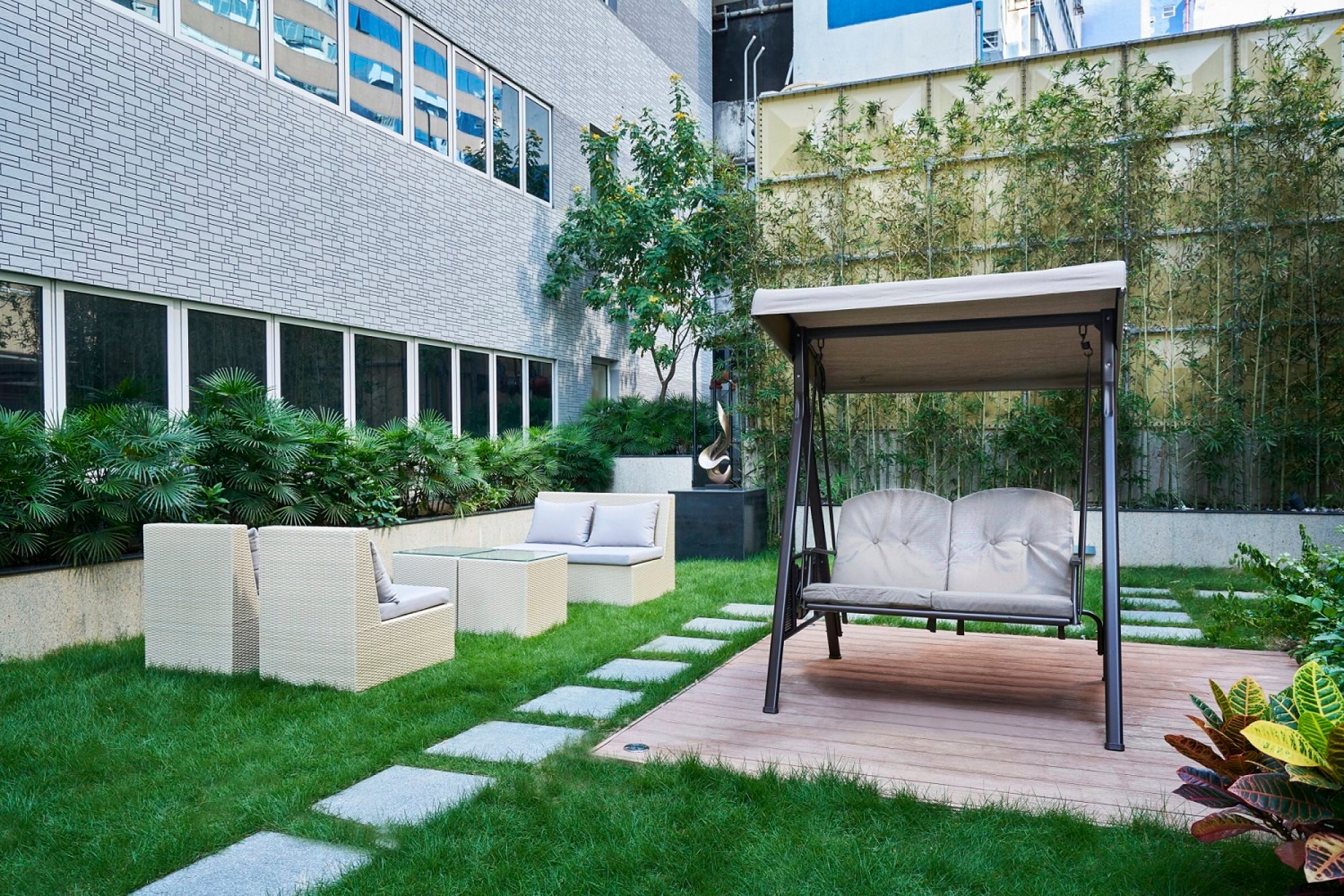
Possessed by 25 or so Hong Kong businesses across various industries, B Corp Certification signals a company is socially and environmentally responsible, and is meeting “high standards of verified performance, accountability, and transparency on factors from employee benefits and charitable giving to supply chain practices and input materials”, claims B Lab Global, the United States-based non-profit organisation – or “movement” – that bestows the honour.
After our humble Hotel Ease · Tsuen Wan (not to be confused with Hotel Ease · Mong Kok) became the first B Corp certified hotel in Asia – did we already mention that? – the continent didn’t see another until October 2022, when Mana Earthly Paradise, in Ubud, Bali, joined the B Corp corps.
Singapore’s Tortoise Island no slowcoach in race to be fully sustainable
“To me, B Corp represents integrity, rigour and values,” explains Mana Earthly Paradise co-founder Tomo Hamakawa, on his website. “It’s for companies that walk the sustainability talk. This is why it was a no-brainer for Mana to embark on the B Corp journey soon after opening.
“Now that we are certified, we are eager to learn from pioneers in the B Corp community and continue improving and evolving.”
Next up was Desa Potato Head Bali, which joined in November 2023.
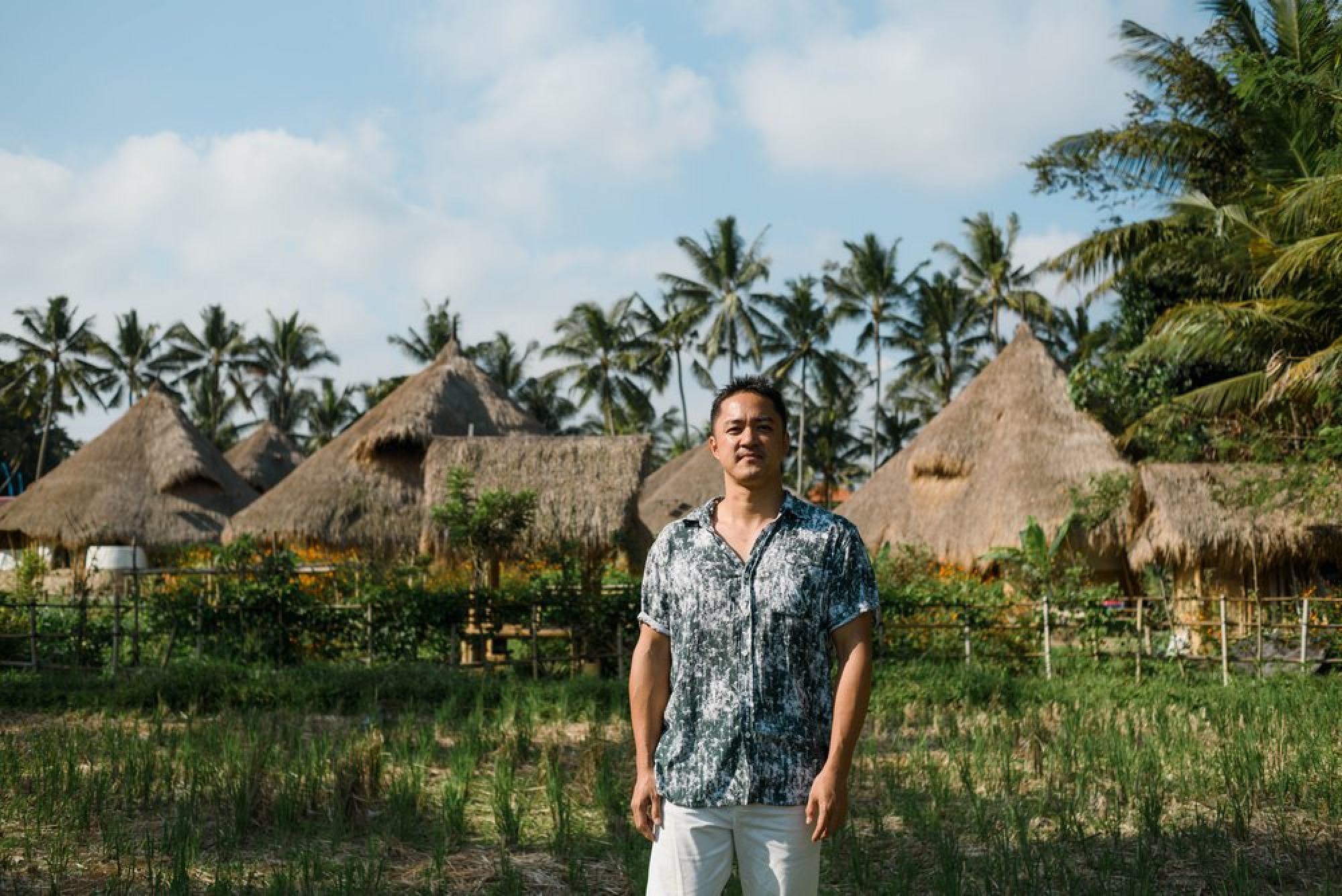
But that’s it – as far as we can tell – for B Corp-certified Asian hotels or resorts. Other tourism- and travel-related businesses are getting their papers – adventure specialists Explore Worldwide, South American-based Rebecca Adventure Travel and schools-focused Haka Educational Tours have all been certified this month – but hotels seem to be slow on the uptake, in Asia as elsewhere.
Amid ever more alarming reports of climate breakdown, you’d think a scheme designed to identify the good guys would be highly popular among hotel-goers. After all, the travelling public do seem to care about the impact they’re having – in Booking.com’s Sustainable Travel Report 2023, 80 per cent of respondents said that travelling more sustainably was important to them – so why aren’t hotels falling over themselves to bag B Corp Certification?
For a start, the process can be onerous. Hopefuls must achieve a score of at least 80 out of a maximum of 200 by completing a questionnaire of around 200 questions and pass a risk review by providing evidence to support their claims. “It can take up to a year to complete; must be renewed every three years; and costs between US$1,000 and US$45,000, the fee relative to the company’s annual revenue,” reports the BBC.
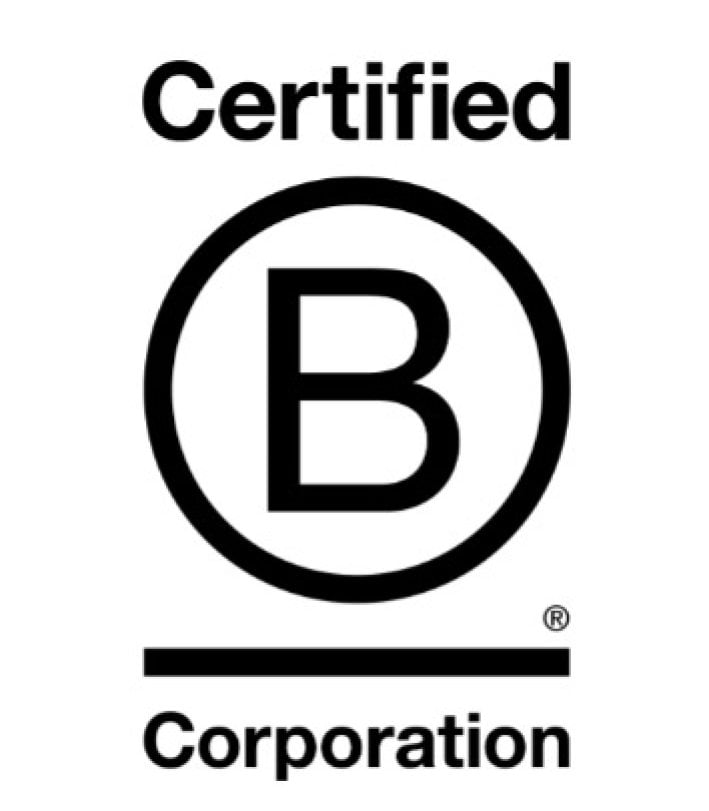
Furthermore, without the scheme having yet become well established, “some consumers and companies alike are wondering if the label is greenwashing, or just another fading buzzword, like ‘ESG’ [environmental, social and governance].”
The scepticism stems partly from the fact that certification relies on self-reporting by the applicants, who are also at liberty to choose their own sustainability goals, which may not align with what customers assume those goals to be.
The BBC report details a few cases where B Corp’ed companies don’t appear to have lived up to their promises but also raises another point, quoting Matthew Cotton, professor of public policy at Teesside University, in Britain: “The sheer volume of different certification schemes means that consumers are becoming confused about which of these schemes is legitimate.”
Who visited Hong Kong the most in 2023, and where did Hongkongers fly to?
In other words, the big B logo B Corp/Lab uses isn’t yet recognisable enough to stand out from the BS (aka greenwashing) that is part and parcel of the promotion of travel and tourism these days.
And with all sorts of Tripadvisor, Hotels.com and hygiene verifications already cluttering up reception desks and websites, perhaps hotels, in particular, consider yet more certification as superfluous.
Not that we agree. We absolutely see the need and hope the B Corp is soon regarded as the A+ of sustainable business certification models, a measure of positive efforts that hotels (as well as other businesses) are proud to put on display.
If and when that happens, don’t forget that the trail was blazed by a modest establishment in old Tsuen Wan.
Maldives sets new record for its tourist arrivals
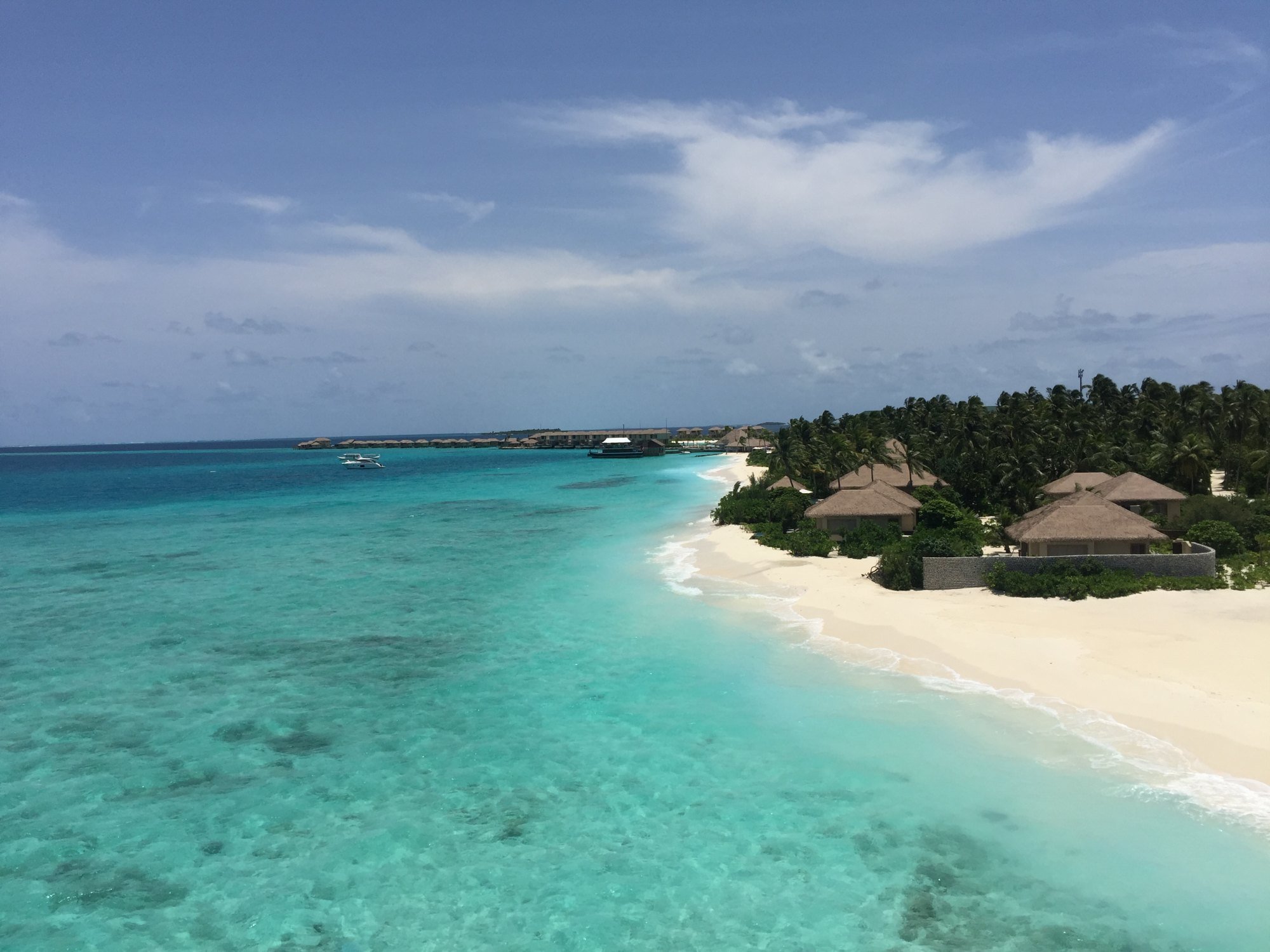
The Maldives have outdone themselves.
On February 11, the nation of scattered holiday islands received, according to Tourism Minister Ibrahim Faisal, the highest number of tourist arrivals ever recorded on a single day: 10,213.
The previous record, set in 2019, was 9,000.
“China is back on top as the biggest source market for tourist arrivals to the Maldives, followed by Italy and Russia,” reports Xinhua, quoting Maldivian Tourism Ministry statistics.
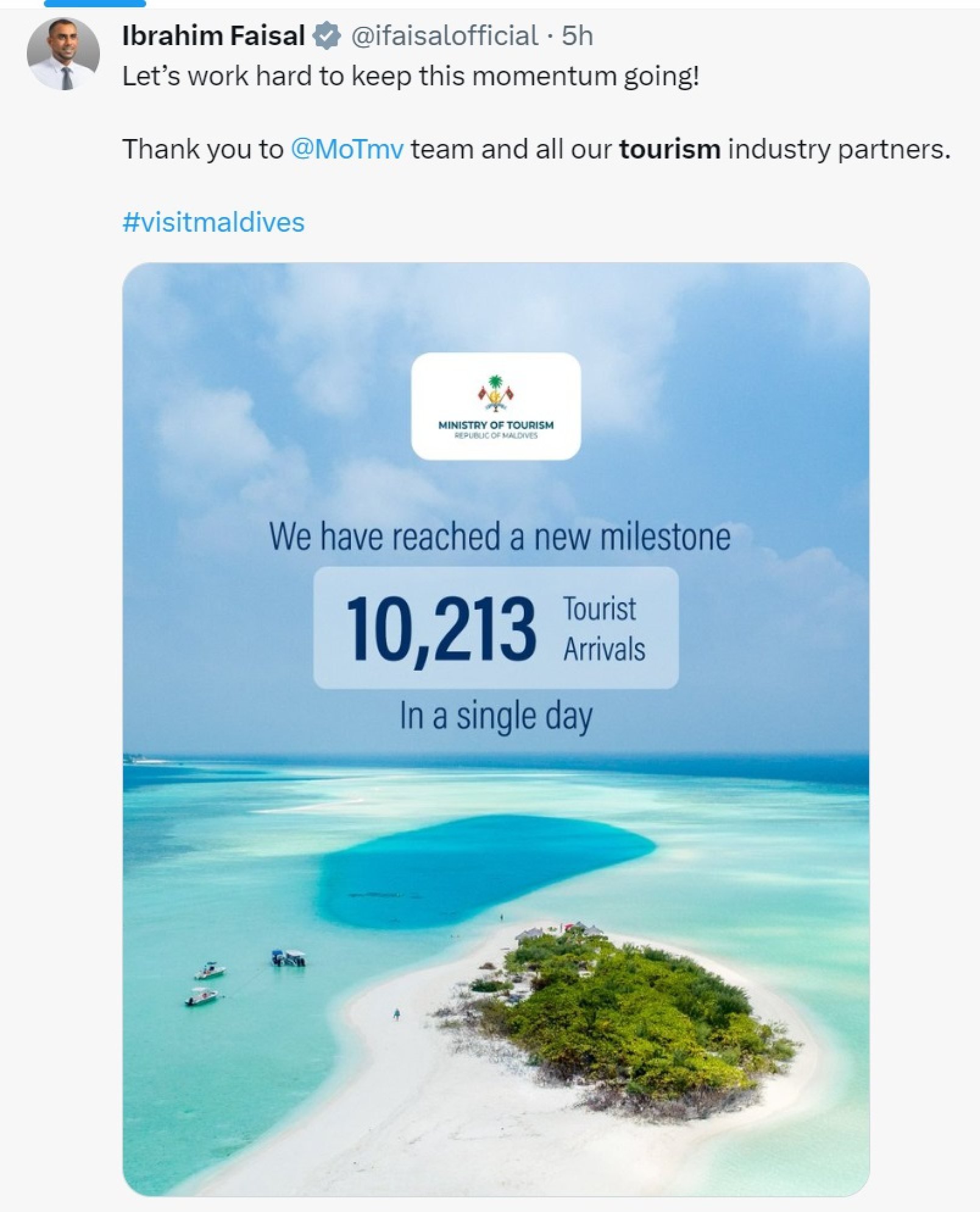
Male wants to attract 2 million tourists to the Maldives’ 175 resorts, 15 hotels and 718 guest houses this year, which would be a fairly pedestrian average daily total of 5,464 daily arrivals through Velana International Airport.

